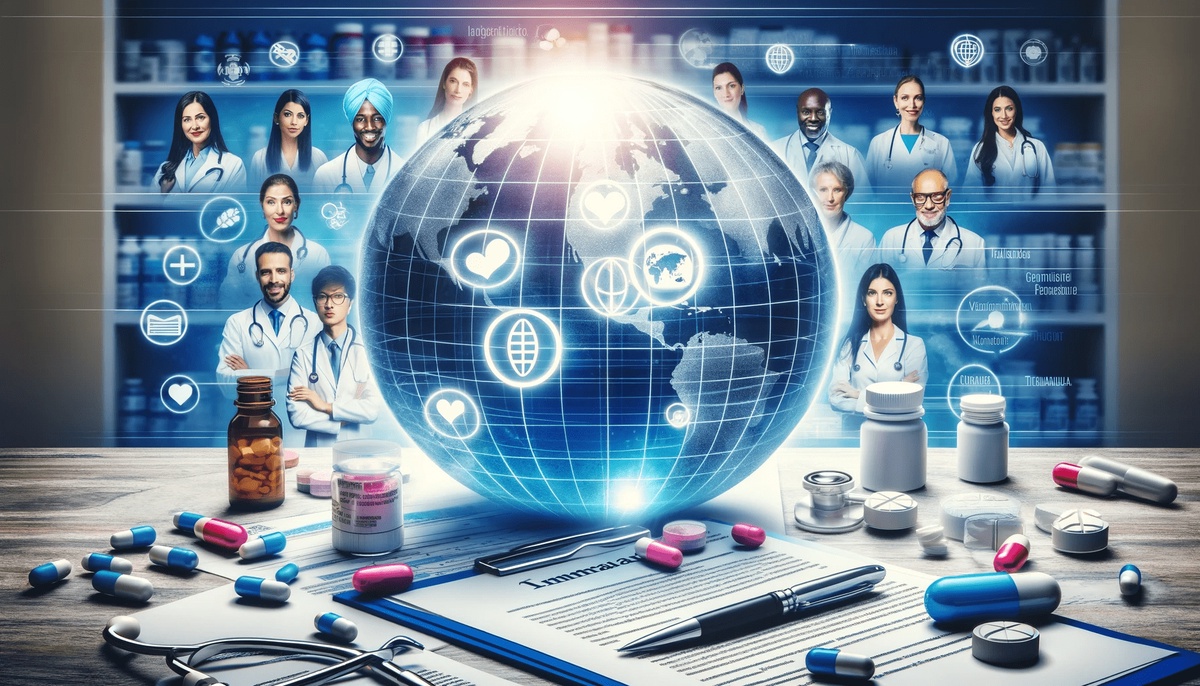In an era where healthcare knows no borders, the pharmaceutical industry is at the forefront of global medicine. However, the path from laboratory discoveries to global markets is laden with linguistic and cultural complexities. Translation and localization emerge as pivotal services in this journey, ensuring that medical breakthroughs are accessible and relevant across diverse global communities.
The Importance of Accurate Translation
Vital for Patient Safety: Inaccurate translations in pharmaceuticals can lead to dangerous misunderstandings. For example, misinterpreting dosage instructions can have life-threatening consequences. Thus, precision in translation is not just about language fluency, it's a critical factor in ensuring patient safety.
Regulatory Compliance: The pharmaceutical sector is heavily regulated. Non-compliance due to translation errors can lead to legal repercussions and delay the availability of crucial medications. Regulatory documents, patent applications, and clinical trial data require meticulous translation to meet international standards.
Maintaining Consistency: Consistency in pharmaceutical translations across various documents is essential. Inconsistent terminology can cause confusion among healthcare professionals and patients alike. Employing specialized translators who are familiar with pharmaceutical terminology is therefore crucial.
Case Studies: Numerous instances highlight the impact of translation accuracy. For instance, a mistranslation in a drug's leaflet led to a massive product recall, underscoring the high stakes involved.
Localization: Beyond Translation
Cultural Sensitivity: Localization in the pharmaceutical industry is not just about language but also about cultural relevance. For example, certain medical practices may be culturally sensitive in some regions. Localization ensures that such nuances are respectfully and accurately conveyed.
Adapting to Local Regulations: Different countries have varied health regulations and standards. Localization involves tailoring pharmaceutical content to align with these regulations, ensuring legal compliance and market suitability.
Case Example: Consider a global pharmaceutical company launching a new drug. The company had to localize the drug information for each market, considering not just the language but also local medical guidelines, cultural beliefs about medication, and legal requirements.
Impact on Marketing: Effective localization also influences marketing strategies. A campaign that resonates in one country might not be effective in another due to cultural differences. Localization helps in crafting marketing messages that are culturally appropriate and appealing https://www.pangea.global/pharma-translation-and-localization-services/.
Challenges in Pharmaceutical Translation and Localization
The process of translating and localizing pharmaceutical content is riddled with challenges that require expert navigation:
- Complex Terminology: The pharmaceutical field is laden with specialized terms. Translators must have a deep understanding of medical vocabulary to avoid errors.
- Evolving Regulations: Health care regulations are constantly changing. Keeping up-to-date with these changes is vital for accurate translations.
- Cultural Barriers: Overcoming cultural barriers is essential. What's acceptable in one culture might be taboo in another, affecting how pharmaceutical information is received.
- Technological Adaptation: As digital health technologies evolve, translators must adapt to new formats and platforms for medical information.
How Professional Services Make a Difference
Professional translation and localization services play a transformative role in the pharmaceutical industry. Their expertise ensures that all aspects of pharmaceutical communication are accurate, compliant, and culturally relevant. Here's how they make a difference:
- Expertise in Specialized Language: These services employ translators who are not only linguistically skilled but also have a background in pharmaceuticals.
- Adherence to Global Regulations: They ensure that all translated materials comply with international and local regulations.
- Cultural Competence: These services understand the cultural nuances of each target market, ensuring that translations are culturally appropriate.
- Quality Control Processes: Rigorous quality control processes are in place to ensure accuracy and consistency in translations.
The Future of Translation and Localization in Pharma
The future of translation and localization in the pharmaceutical industry is intertwined with technological advancements and the growing need for global health solutions. Here's what we can expect:
- Increased Reliance on Technology: Advancements in AI and machine learning will enhance translation efficiency while maintaining accuracy.
- Greater Demand for Localization: As the global population becomes more diverse, the need for culturally sensitive medical information will grow.
- Focus on Digital Health Materials: With the rise of telemedicine and digital health platforms, translating and localizing digital content will become increasingly important.
Conclusion
The pharmaceutical industry's journey in global healthcare is critically dependent on effective translation and localization services. These services ensure that life-saving medical information transcends linguistic and cultural barriers, reaching those who need it most in a manner that is both understandable and culturally respectful. In a world where health is a universal priority, the role of translation and localization becomes more vital than ever.


No comments yet